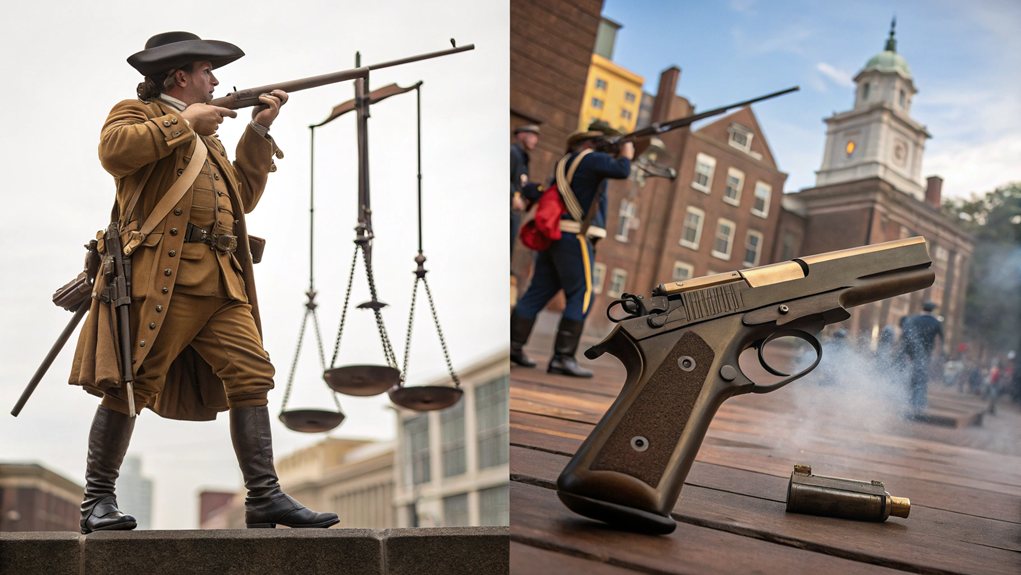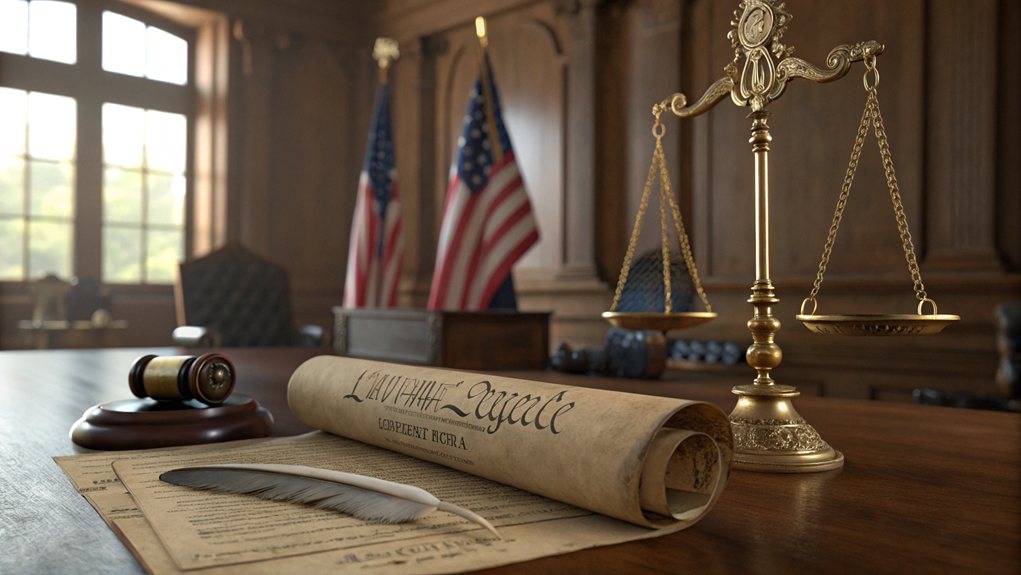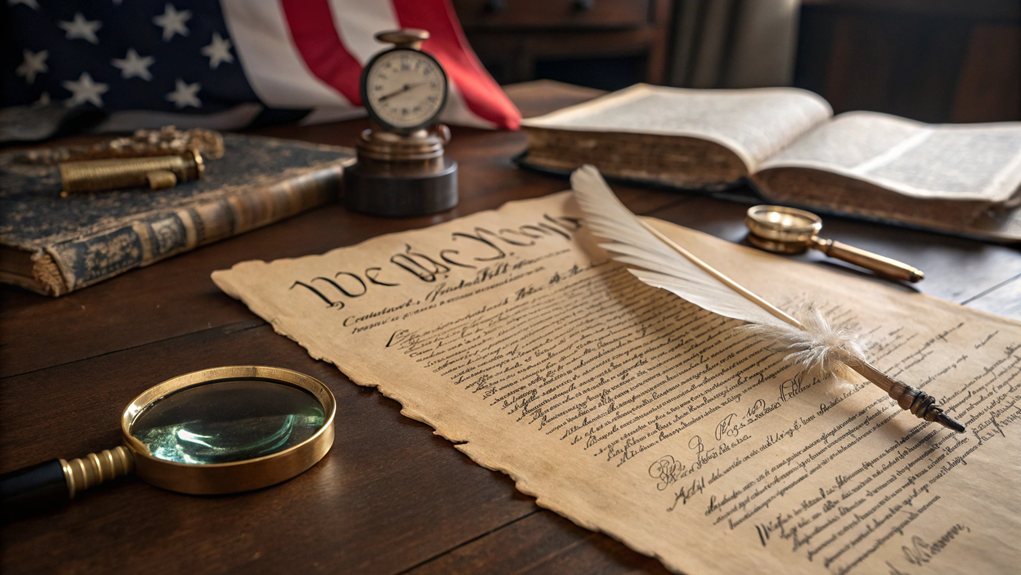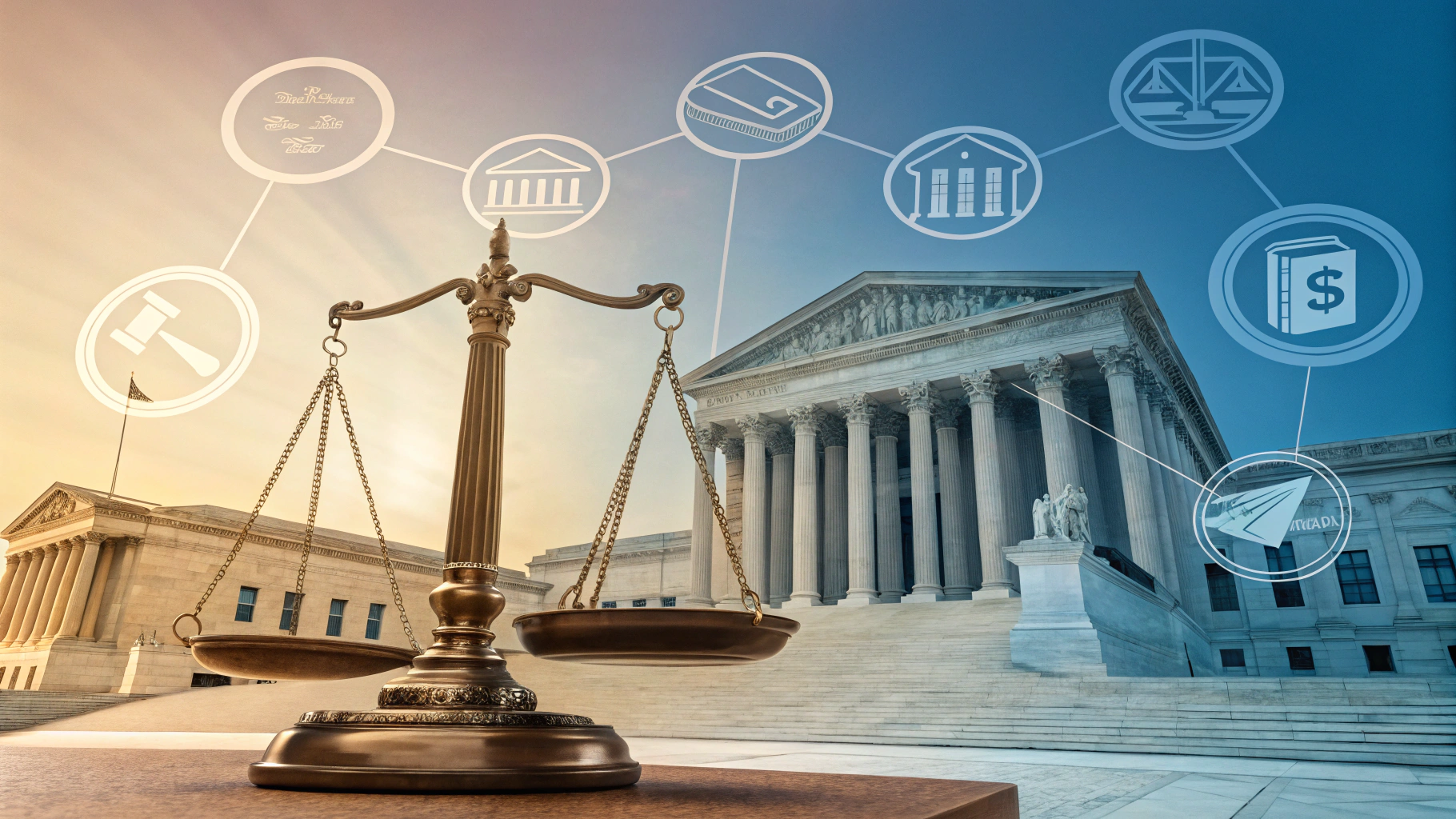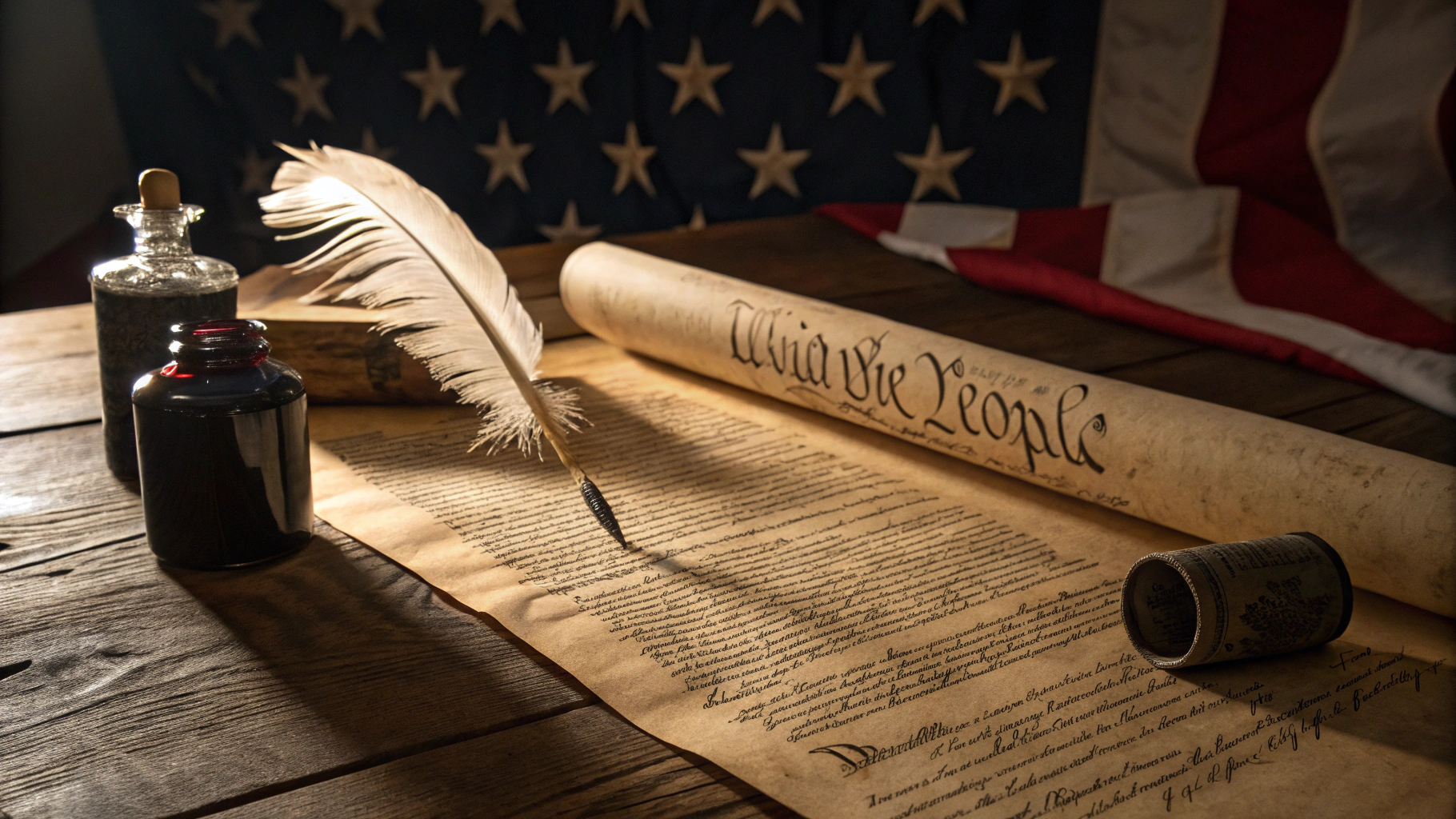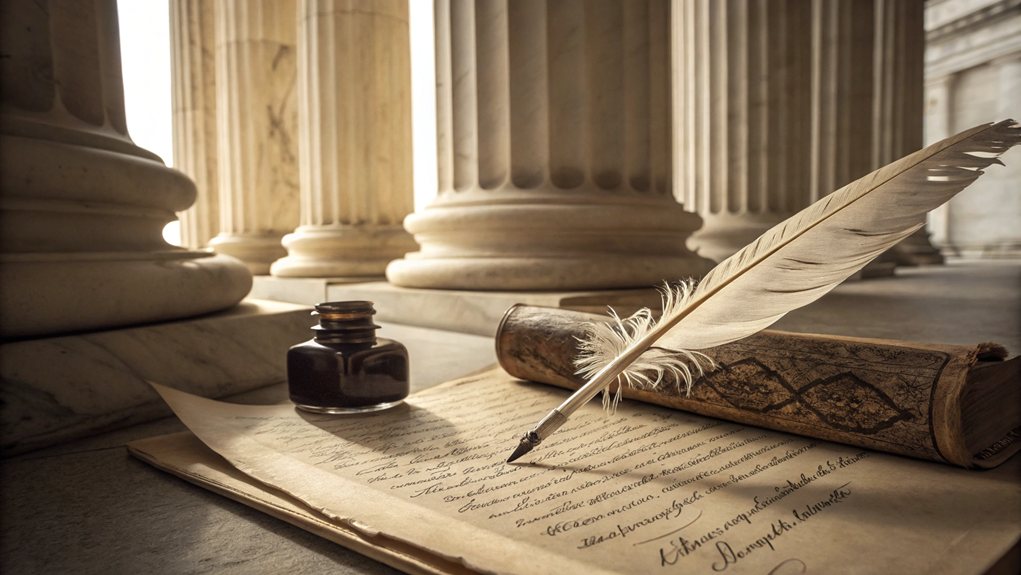The interpretation of the Second Amendment has totally morphed over time. Initially, it was all about state militias, but then it shifted gears. Landmark cases like Heller in 2008 made it clear: individual self-defense takes the cake. Now, personal ownership rules the roost. Opinions are split, with gun control debates heating up. The historical roots still matter, though. What's next? Well, brace yourself, because things are bound to change again.
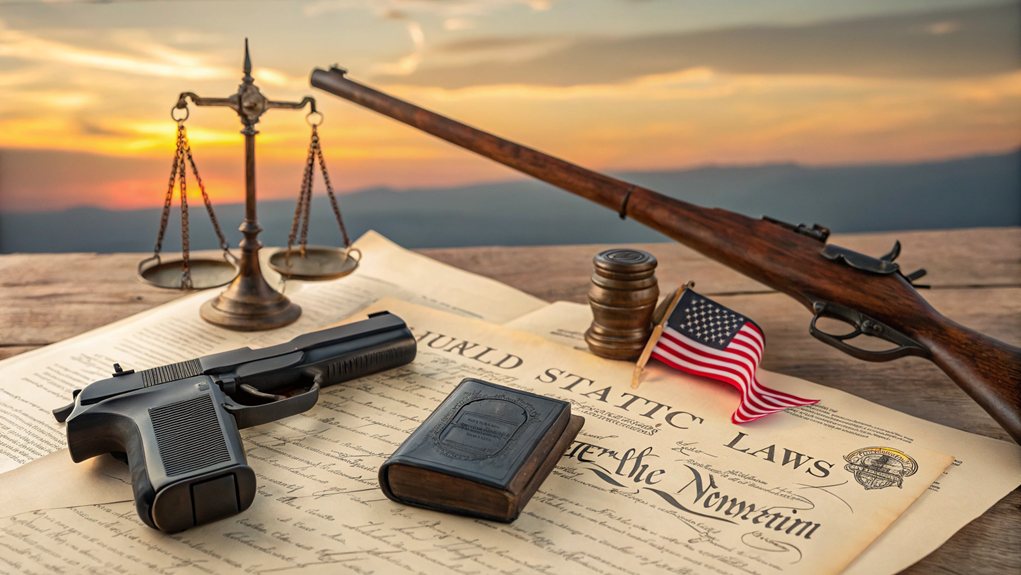
The Second Amendment has undergone quite the makeover over the centuries. Initially, it was all about militias, a nod to the English Bill of Rights of 1689. Back then, colonial Americans needed their militias to fend off threats. So, when James Madison drafted the amendment, it included language to keep those militias intact.
But let's face it, nobody in 1789 was thinking about individual gun ownership in the same way we do today. The final version didn't even get much attention at first. It was like the quiet kid in class—overlooked.
Early interpretations? They missed the mark. Courts focused on the collective right. Yes, the collective. The idea was that states needed their militias, not that individuals should strut around with firearms. Key Supreme Court cases have played a crucial role in this shift, reflecting broader changes in legal thought and societal values surrounding gun ownership and control.
Sure, some early rulings allowed for limited individual rights, but it was nothing compared to today's standards. Scholarly debate on the Second Amendment was practically non-existent until the late 20th century. It was a real snooze-fest.
Then came the landmark cases that flipped the script. In 2001, United States v. Emerson began a shift towards recognizing individual rights. But it was the 2008 case, District of Columbia v. Heller, that really shook things up. The Supreme Court ruled that individuals had the right to bear arms for self-defense, establishing that this right was not solely linked to militia needs. This ruling underscored the historical context of the amendment's origins in citizen militias.
Finally, people were talking about personal rights! And don't forget McDonald v. Chicago in 2010, which extended these rights nationwide. Gun control debates? Yeah, they got a lot spicier.
Now, the focus has shifted completely. It's not just about militias anymore; it's about individuals defending themselves. But wait, the debates rage on. Even with legal rulings, the conversation isn't over.
Historical context matters, but so does the current landscape. The Second Amendment continues to shape our legal and social discourse. Talk about a wild ride!
Frequently Asked Questions
What Are the Historical Origins of the Second Amendment?
The Second Amendment's roots are deep and tangled. It harks back to ancient times, influenced by the English Bill of Rights.
Imagine early Americans relying on militias for defense—quite the throwback! James Madison had a hand in its drafting, stressing the need for a well-armed militia.
Fast forward to the ratification in 1789, and voilà, the Second Amendment was born. It's a mix of history, politics, and a dash of paranoia about government power.
How Do Different States Interpret the Second Amendment?
Different states interpret the Second Amendment in wildly varying ways.
Some lean toward strict gun control, while others throw open the floodgates.
Background checks? Maybe, maybe not.
And concealed carry laws? A mixed bag. Some states are like, "Sure, pack heat!" Others? Not so much.
It's a patchwork quilt of regulations.
Basically, if you want to know what the Second Amendment means, just check your state line—results may vary dramatically.
What Role Does the Supreme Court Play in Second Amendment Cases?
The Supreme Court? Oh, they're the big players in Second Amendment cases. They set the rules, changing how rights are viewed.
From collective rights to individual ownership, they've shifted the whole game. Decisions like *Heller* and *Bruen* made waves, impacting state laws and igniting a firestorm of litigation.
Everyone's scrambling to keep up. It's like a legal chess match, with the Court making the moves and everyone else reacting. What a spectacle!
How Has Public Opinion Influenced Second Amendment Interpretations?
Public opinion has been a wild ride when it comes to Second Amendment interpretations.
It's like a pendulum swinging back and forth. One moment, everyone's rallying for stricter gun control; the next, they're hoarding firearms like it's the apocalypse.
High-profile shootings spark outrage, while landmark court cases send people into a frenzy. Advocacy groups? They're relentless.
The result? A constant tug-of-war between gun rights and regulations, with public sentiment driving the whole chaotic circus.
What Are the Implications of Recent Supreme Court Rulings on Gun Rights?
Recent Supreme Court rulings on gun rights? Buckle up. They've got everyone on edge.
The *Bruen* decision shook things up, making gun laws face a historical test. So, yeah, expect a flood of legal challenges.
Public safety? Who knows? States are scrambling to rewrite laws, but confusion reigns. Judges can't agree, and the debate rages on.
With gun violence worries skyrocketing, it's a messy, chaotic situation that leaves many questions hanging.
